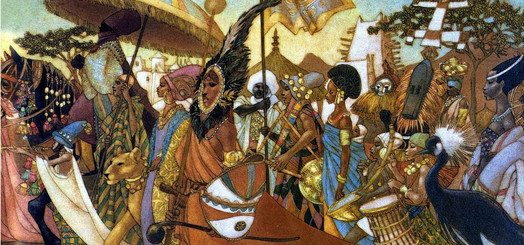Why do we need to learn about Africa if we are not in Africa?
- AfricanAffairsNetwork
- Jun 27, 2019
- 3 min read
By Leonie, President
In recent times there have been an increase in the number of students in higher education institutions calling out their curriculum for being ‘White’. This means that most of the thinkers and authors studies are white, the theories are ‘white’ and the histories are taught only from a Eurocentric perspective that places Europe/USA at the centre of everything. Essentially in compulsory courses among social science, arts and humanities all are centred around whiteness.
If you look back to your compulsory education from ages 4/5 to 18, it seems as if all we have been taught is about white people, from the Tudors to WW2, white people are always at the centre. Even when we learnt about ancient Egypt they somehow manage to affiliate it more to the West and at a young age you do not realise that Egypt is part of Africa. We start to attribute their high intelligence and civilisation with its affiliation with whiteness rather than thinking it is in the continent of Africa.
But what is the problem, we are in a majority white western nation so why should we learn about African nations? Which is what many (white) people ask and it is a legitimate question, we should know our own history before we start learning anyone else’s. But when we are learning a twisted and untrue version of our history every year till we finish secondary – essentially it seems to be more brainwashing than education.
We learn that at a point in time Britain had the largest empire, they said it was an empire ‘where the sin never set’ – Britain had a colony in every time zone (let that sink in). Despite having such a large impact on many nations we barely learn about their influences and actions within these nations.
We are taught about the slave trade but not about the slaves that the UK had, just that the UK were more of a transportation service for the US. We do not learn about the struggles and the fights that occurred for freedom from the UK, but we learn about the US civil rights history. We learn that Britain was way ahead of the times by abolishing slavery in 1833 yet most African nations didn’t get their independence till the mid-20th century. When African nations started declaring their freedom for the UK, we are taught that it was out of the goodness of their hearts. Some of our parents and grandparents were alive during a colonised Africa – it was that recent. Yet we do not learn about the savagery and dehumanisation that occurred in these British colonies. Alas, we are taught about how the UK was ever so kind to bring civilisation to the uncivilised. Despite there being a pretty good history of ‘civil behaviour within Africa pre-colonisation.
In more recent times we learn about how poor Africa is and how it was (still is) the white man’s burden to bring wealth, prosperity and development to these nations – but they do not say that it was the same white man who put Africa in that position to begin with.
This is not about being anti-white or anti-western, it’s about being fed up of only learning half-truths in one perspective. It’s like your sibling starts a fight with you, then your sibling tells your parent what happened and does not allow you to speak, you get punished without explaining your side and then that same sibling lectures you about how to be a better person. It is unfair and unjust that only one side of the story ever gets told. All because something is uncomfortable to talk about does not mean that it should not be taught.
If the argument is that we are in Britain so we should learn British history then let us truly learn British history – let us not be fed this watered down, rosy tinted, twisted version of history that over celebrates the white man’s contribution while erasing his mistakes. What African Affairs Network aims to do is to shed light onto current issues within Africa from a different point of view. To show the Africa that is not taught in the curriculum and a counter to the poverty porn that is displayed in the media.
























Comments